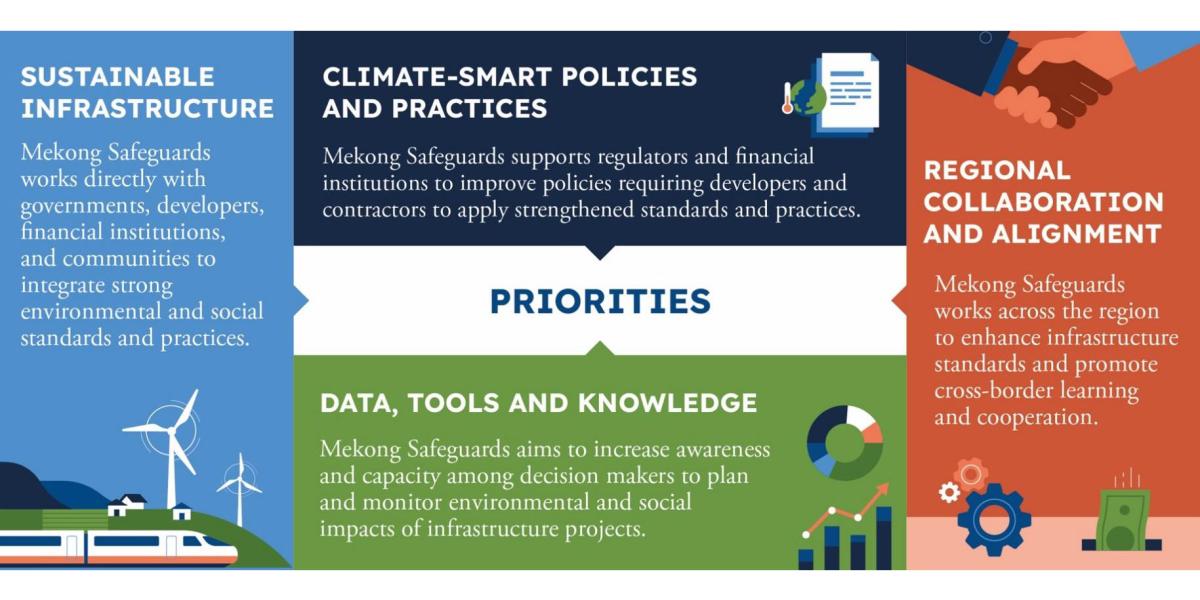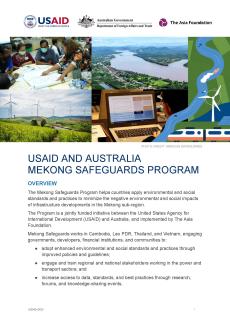The Mekong Safeguards Program helps countries apply environmental and social standards and practices to minimize the negative environmental and social impacts of infrastructure developments in the Mekong sub-region.
The Program is a jointly funded initiative between the United States Agency for International Development (USAID) and Australia, and implemented by The Asia Foundation.
Mekong Safeguards works in Cambodia, Lao PDR, Thailand, and Vietnam, engaging governments, developers, financial institutions, and communities to:
adopt enhanced environmental and social standards and practices through improved policies and guidelines;
engage and train regional and national stakeholders working in the power and transport sectors; and
increase access to data, standards, and best practices through research, forums, and knowledge-sharing events.

Priorities
Sustainable Infrastructure - Mekong Safeguards works directly with governments, developers, financial institutions, and communities to integrate strong environmental and social standards and practices.
Climate-Smart Policies and Practices - Mekong Safeguards supports regulators and financial institutions to improve policies requiring developers and contractors to apply strengthened standards and practices.
Regional Collaboration and Alignment - Mekong Safeguards works across the region to enhance infrastructure standards and promote cross-border learning and cooperation.
Data, Tools and Knowledge - Mekong Safeguards aims to increase awareness and capacity among decision makers to plan and monitor environmental and social impacts of infrastructure projects.
Key Results
From 2018 to 2023, Mekong Safeguards’ assistance achieved the following results:
Private sector energy infrastructure projects integrating stronger environmental practices and policies
- Integrated improved environment commitments and practices within 47 energy projects across the region with a combined generation capacity of 3.7 gigawatt.
- Strengthened environmental and social standards for US$3.8 billion in private sector investments for power plants and transmission lines.
Increasing knowledge of sustainable infrastructure in the region
- 20 regional training events.
- 1,500+ participants in government, companies, civil society, and NGOs.
Empowering women in a male-dominated sector
- 5 government or corporate policies enhancing social standards, including gender equality, disability, and social inclusion.
- Activities integrate gender equality and social inclusion, including improving the economic resilience of women-owned businesses along the Thai high-speed rail.
- 45% of participants in knowledge-sharing and capacity building events identify as women.
Strengthening the capacity of people influencing infrastructure development
- 393 key actors who directly influence or inform infrastructure policies or investments indicate strengthened knowledge or capacity in sustainable practices
- 35 tools, datasets, and sharing platforms enhancing data availability on energy and transport infrastructure to the public
For more information, visit www.mekongsafeguards.org.


